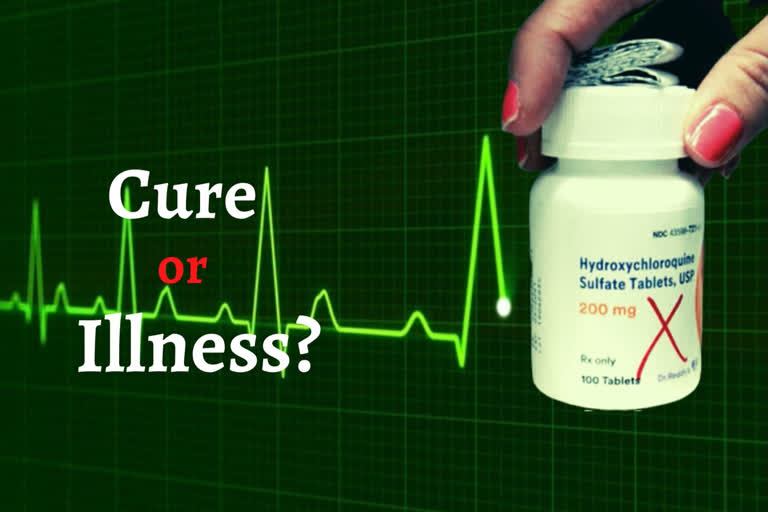Hyderabad: While early studies suggested that the anti-malarial drug 'hydroxychloroquine' can be used to combat COVID-19, the results have shown otherwise.
As of now, the trial for the drug has been halted after patients that it was tested on developed severe heart complications.
During these trials conducted at the Tropical Medicine Foundation in Brazil, 440 coronavirus patients were administered the drug after which they developed testicular pain and several other symptoms.
The same trials revealed that the drug used to treat HIV can be useful in the treatment of COVID-19.
Side effects of hydroxychloroquine
- Blistering, peeling, loosening of skin
- Blurred vision or other vision changes
- Cough or hoarseness
- Dark urine
- Diarrhea
- Difficulty in breathing
- Fever with or without chills
- General feeling of tiredness or weakness
- Headache
- Red irritated eyes
- Sores, ulcers, or white spots on the lips or in the mouth
- Uncontrolled twisting movements of the neck, trunk, arms, or legs
Symptoms of overdose
- Drowsiness
- Dry mouth
- Loss of appetite
- Unconsciousness
Also, the drug produces several side effects that usually do not need medical assistance but could be harmful in the long run. These side effects are said to go away as the human body adjusts itself to the medicine.
Some of these side effects are
- Nausea
- Nightmares
- Uncontrolled eye movements
- Cardiomyopathy (can result in fatal cardiac failure), biventricular hypertrophy
- Abdominal pain, diarrhea, vomiting
- Psychosis, suicidal behavior
However, upon administered to a patient for a long time, it may lead to
- History of vision changes or damage to retina
- Heart disease, heart rhythm disorder (such as long QT syndrome)
- Diabetes
- Stomach disorder
- Allergy to quinine
- Liver or kidney disease
- Psoriasis
- Alcoholism
- Genetic enzyme disorder such as porphyria or glucose-6-phosphate dehydrogenase (G6PD) deficiency
Read:| 'India needs efficient testing on a large scale to fight against Covid-19'



